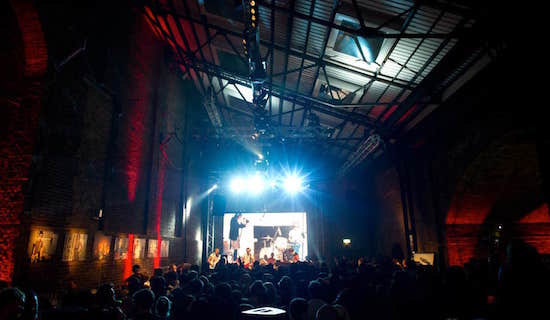Organisations and figures from across the UK music industry have condemned Chancellor Rishi Sunak’s Winter Economy Plan as the potential death knell for the UK’s live music and culture sector.
The Chancellor today (September 24) unveiled a series of measures aimed at supporting businesses and their employees through a winter that will see ongoing COVID-19-related restrictions, including a 10pm curfew for bars, pubs and restaurants.
Amongst the plans announced today was a Job Support Scheme to top up the wages of employees who are working at least a third of their normal hours, with employers required to pay the remaining 55%. The initiative will replace the current furlough scheme, which comes to an end on October 31. It’s been noted that many businesses that are still unable to open, including nightclubs, will simply be forced to let go of staff when the furlough scheme ends as they will not have the funds to cover 55% of wages.
Most concerning for many independent musicians, DJs, promoters and other music industry figures was the news that the government would only offer the self-employed grants that would amount to 20% of their average monthly profits, which will be worked out from an average of their self-assessed tax returns from the three previous years. This will replace the Self-Employment Income Support Scheme (SEISS) that saw the government pay out 80% of average monthly profits from March to May of this year, and then 70% from June to August.
"How is anyone who is living fairly hand to mouth supposed to get by on 20% income?" asks Anthony Chalmers from London-based promoter Baba Yaga’s Hut. "The entire industry, unless you have significant savings, needs a new job."

Noting that self-employed musicians, tech staff, support staff and venue people would not be able to work in the same way as others while venues remained close, Chalmers says that the government must do more to support those people and others like them.
"An average worker earning, let’s say, £1500 a month is going to get £300," he told tQ. "That’s not enough for rent, let alone food, life, etc."
Music Venue Trust CEO Mark Davyd said today’s plan did not offer sector-specific support for the challenges faced by the live music industry.
"The new job support programme is built around the premise of returning to work, and employers returning to some level of income arising from that work to support those workers," said Davyd. "The government has made it clear that it does not believe that the time is right for the live music industry to return to work, and where limited events, under substantial restrictions, are permitted, the income generated is insufficient to meet any of the government targets for employer contributions.
"Bluntly, no part of the live music industry is in a position to pay 55% of its employees salaries in order to access the government support which is entirely conditional on doing that."

Of the gloomy outlook for grassroots music venues, Chalmers, of Baba Yaga’s Hut, told tQ: "Unless something changes most venues should just shut right now. They can’t pay rent for six months realistically.
"Even if you can get your venue COVID-friendly on a reduced cap, people are going to be less and less willing to travel. The government advice is against non essential travel. What are the venues supposed to do for six months?"
Similarly, Mark Davyd of the Music Venue Trust added that today’s statement offered little to no action on rent for venues, or support for the many freelancers who have fallen through the existing net of financial support.
Taking to Twitter, Sacha Lord, the Night Time Economy Adviser for Greater Manchester, said Rishi Sunak and the government had turned their backs on the hospitality sector.
"While these new financial aid measures are helpful, they do not go far enough to keep many businesses viable, and I predict a tidal wave of redundancies across the UK night time economy as we enter the end of the year," he said.
"At the start of the crisis, the Chancellor assured us he would stick by all businesses, but today has turned his back on this commitment. Live Music Venues, Nightclubs, Musicians, Performers, Freelancers, Events. All forgotten.
"In hospitality alone, there are 900,000 workers still on furlough, and a further 1.3million people across the UK work within the nightclub industry. For many operators, it will be easier to remove these individuals from payrolls completely than go under."


